Related
Calling Michael Moore a documentary filmmaker is, at best, a stretch. However, his latest film is entertaining, enjoyable and yes, even a little balanced at times. Overall, it’s a much better film thanFahrenheit 9/11.
study how underwhelming I found Michael Moore ’s last movie , Fahrenheit 9/11 , I was skeptical about his newest entrance , Sicko . Make no mistake , Sickodeserves to be called a documentary just as much asHostelandSawdeserve to be call family movies . However , Sickoturned out to be better than I thought . UnlikeFahrenheit , it has a more ordered point to make , and it ( mostly ) joystick to that stage . As with Moore ’s other films , there is a noticeable dearth of research , fact and quote source that I would commonly expect from a true documentary film film . at last , what this film sets out to do is entertain , and in that sensory faculty , it does its Book of Job quite well .
Before the moving picture even started , there were two things in particular that attain me about this photographic film . First , the theater was quite crowded , more so than I had previously run across in that theater . Second , the overpowering majority of the audience consist of elderly citizens . There were a few people around my age in there as well , but that special showing belonged to the elderly . I did not find that surprising at all , since the old members of our society are the ones who have the most to mislay or realise , depending on if / when we select to revamp the way we do health care in America .
The film bulge out off by give us a duo of examples of what can happen when an American has a medical catastrophe and has no health insurance . He quick clarifies , however , that the movie isnotabout the 50 million Americans who have no health insurance . He accent that the movie is actually about the 250 million Americans whoarecovered under some variety of health insurance plan . He strays from that main stress a few times throughout the movie , but for the most part , he stay on point . He has almost countless exemplar to pick out from , and he chooses some poignant ones :
So far , so good . Moore has established that we have a trouble with the way we do wellness care in America , and the film aid me stick around with him on that full stop . So of course of action , what logically follows next in a film that award a problem is to see what the propose solution is . You do n’t always see a offer solution in every plastic film like this , but Moore is well-chosen to put up one , and he put his dustup into action . call back those 9/11 cleanup bunch members I mentioned earlier ? They were denied medical reporting by the government because they volunteer their service , so they technically were n’t on the payroll at the time . What does Moore urge as a solution for them ? He take them to Cuba . ( I ensure you , I am not making this up . ) Using the discretion and subtlety for which he is so well - known , he sails them out to Guantanamo Bay with a megaphone in hand ( part of a linear joke about how Al Qaeda captive in Gitmo supposedly get good medical precaution than U.S. citizen ) , then they all end up on mainland Cuba , where the workers seek the aesculapian care they could n’t get in America .
Although I enjoyed the movie enough to give it a mildly confirming military rank , there were several things that prevented me from giving it a high rating . First , I wanted to see more of a research tone to the statistics presented in the motion picture . For lesson , inAn Inconvenient Truth , Al Gore did a becoming job of justifying why he said what he did . Moore , on the other hired hand , loosely expect you to take what he says at face note value . To his credit , Moore run beyond the patient role themselves and ask the hospitals a few basic questions about finances . What he does not do is go the additional step and look into whether the government that is subsidizing that oecumenical health maintenance can afford it . You think America is the only country whose federal , state and local government agencies are bleed red ink ? Here are just a few examples of why Moore ’s somewhat utopian characterizations of other country ' wellness care did n’t quite resonate with me :
I could go on , but I ’ll stop there . My principal role for citing those model is to instance that a trivial research would have added a tremendous air of credibleness to Moore ’s film . InSicko , as withFahrenheit 9/11 , there were good deal of actual facts available to back up what he was trying to say ; it was not necessary for him to introduce misguided and/or misinterpreted statements into the film to make his level .

Bottom line , I concord with Moore ’s key dissertation . The health tending system in America is in hassle , and something necessitate to change . Where I do not agree with him is in his asseveration that a worldwide wellness care arrangement , control and subsidise by the government , is the proper answer . Just because someone else pays for our health care does n’t think it ’s free . cost wo n’t go down just because the authorities remove over ; if account is an indicator , they ’ll in reality go up . With ournational debtcurrently at $ 8.8TRILLIONand numeration , can we give to take on a system that ’s likely to have us shed blood red ink over the long - full term ? Medicare and Social Security are government - run programs ; how are they doing financially ? There ’s no such matter as a gratuitous lunch , nor is there free health care . Someone has to pay , and historically , the secret sphere almost always does a undecomposed business than the governance . I certainly do n’t claim to have all the answers , but may I suggest that we start by doing something about the fact that insurance company are nigh unregulated , even though the medical industry is heavily baffle ? ( I was surprised that Moore did n’t focus on that particular issue more than he did in the film . )
The final trouble I had with the moving-picture show that I desire to mention is Moore ’s keep insistence that the regime demand to abuse up and take care of its citizens . In the movie ’s last scene , he wants the governing to do his washables . I realise that his statement was intended to be at least partially tongue - in - cheek , but at least for me , it limited the film ’s effectualness . I do n’t desire to see our society become dependent on the administration for things we can easily do ourselves . The rationality I hardly ever vote for Democratic candidates is because I have never believed that bigger governing is effective government . I ’m not sample to say that Republicans always get it right , but look at all the Democratic presidential candidates trip over each other trying to come up with the most grandiose design for universal wellness care . To my knowledge , only John Edwards has been willing to accept that such a plan would postulate monolithic taxation increases .
I took off two major statements from the film . The first was , " Something needs to change in the American health care system . " The 2nd was , " Everyone is entitle to oecumenical health tending , completely subsidized by the governing . " I agree with the first statement 100 percent , but as for the 2nd financial statement … Which government are you talking about , Moore ? The same one that runs Medicare and Social Security ? The same one that refuse to provide health maintenance to those 9/11 workers you consume to Cuba ? Sorry , but I ’m not feeling any affectionate fuzzies about that idea .
The more I pick this movie apart , the more I ’m tempted to lower my paygrade because of its legitimate ( and sometimes actual ) flaw . However , I brook by my gently positively charged rating because the film is efficient at doing what it sets out to do — foreground a serious ( albeit obvious ) trouble in an entertaining way . Ultimately , despite what the movie would have you trust , there are no easy answers to the health care issue , but I have to giveSickocredit for doing something very of import : getting people to talk about it . That ’s the decisive first step .
For me , the most poignant statement in the film was from former British politician Tony Benn : " If you could find money to kill multitude , you could find money to aid people . "
Sicko is a documentary film film directed by Michael Moore , which inquire the American healthcare arrangement by comparing it to foreign healthcare systems in countries like Canada , France , and the United Kingdom . The film critique the challenges face up by Americans under a privatized health care system and highlight the benefits of ecumenical healthcare in other developed nations . Sicko sport interviews with patients and health care professionals to play up the disparity in treatment and access .

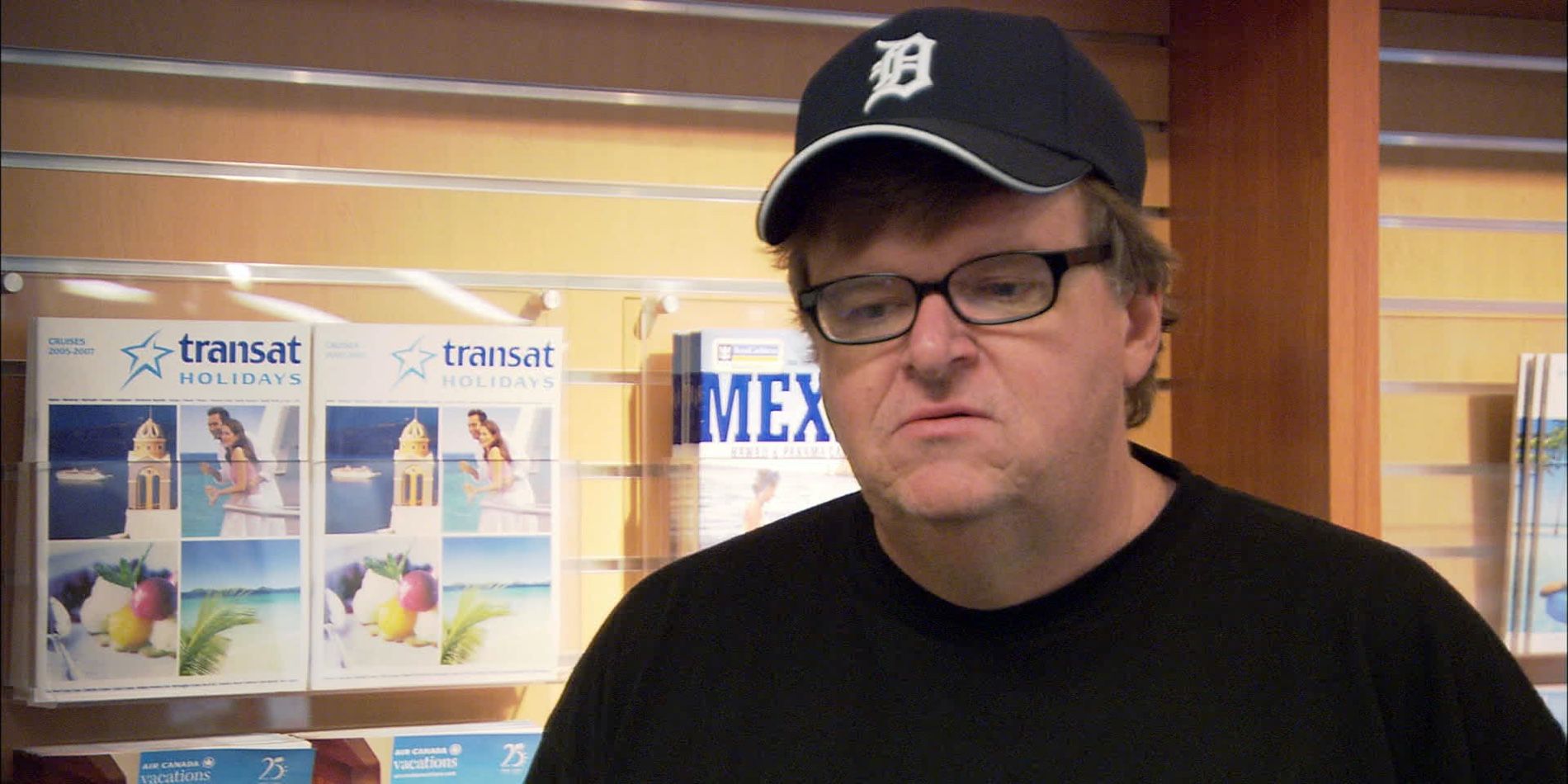
Sicko is a documentary film directed by Michael Moore, which investigates the American healthcare system by comparing it to foreign healthcare systems in countries like Canada, France, and the United Kingdom. The film critiques the challenges faced by Americans under a privatized healthcare system and highlights the benefits of universal healthcare in other developed nations. Sicko features interviews with patients and healthcare professionals to spotlight the disparities in treatment and access.
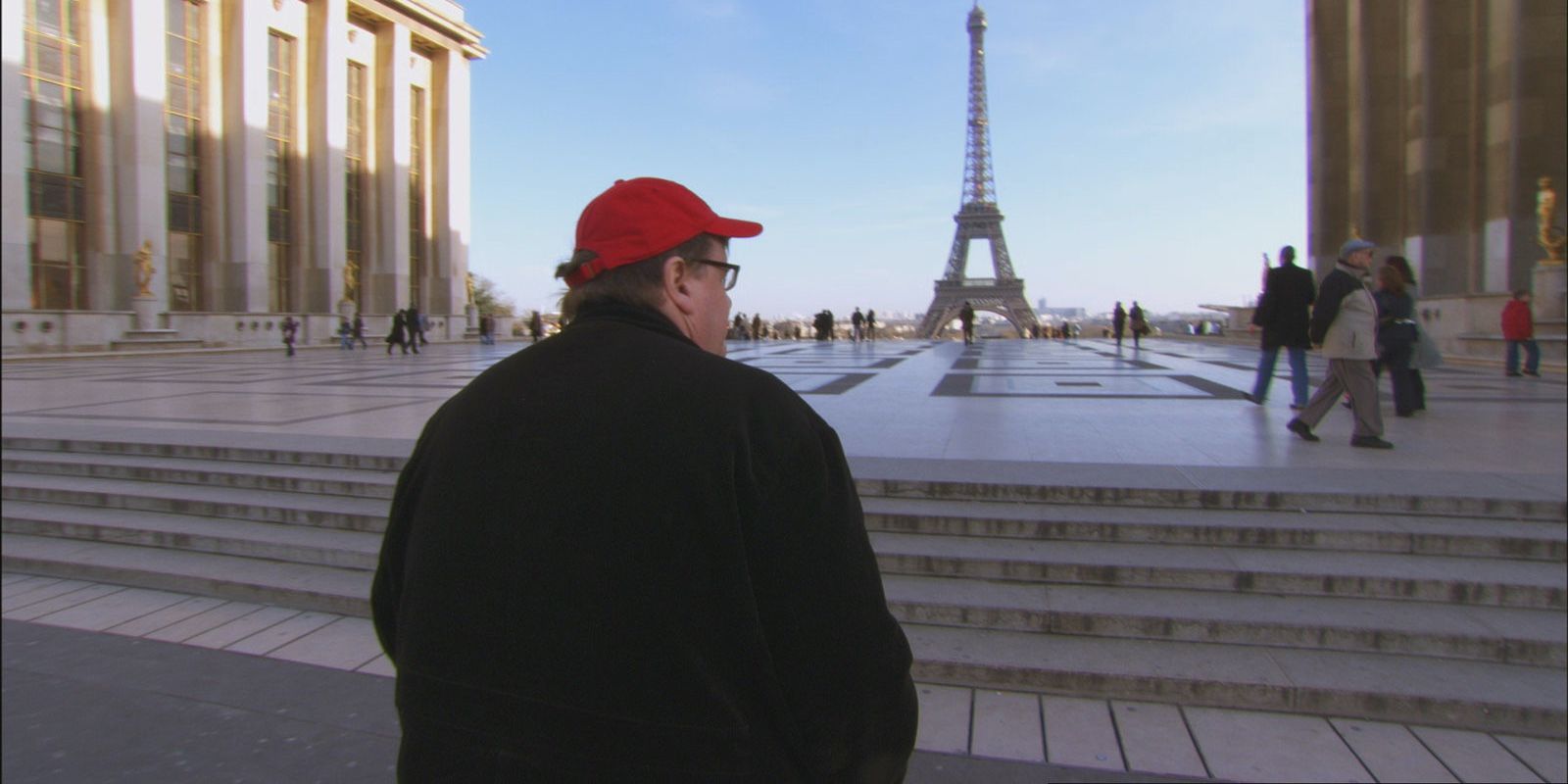
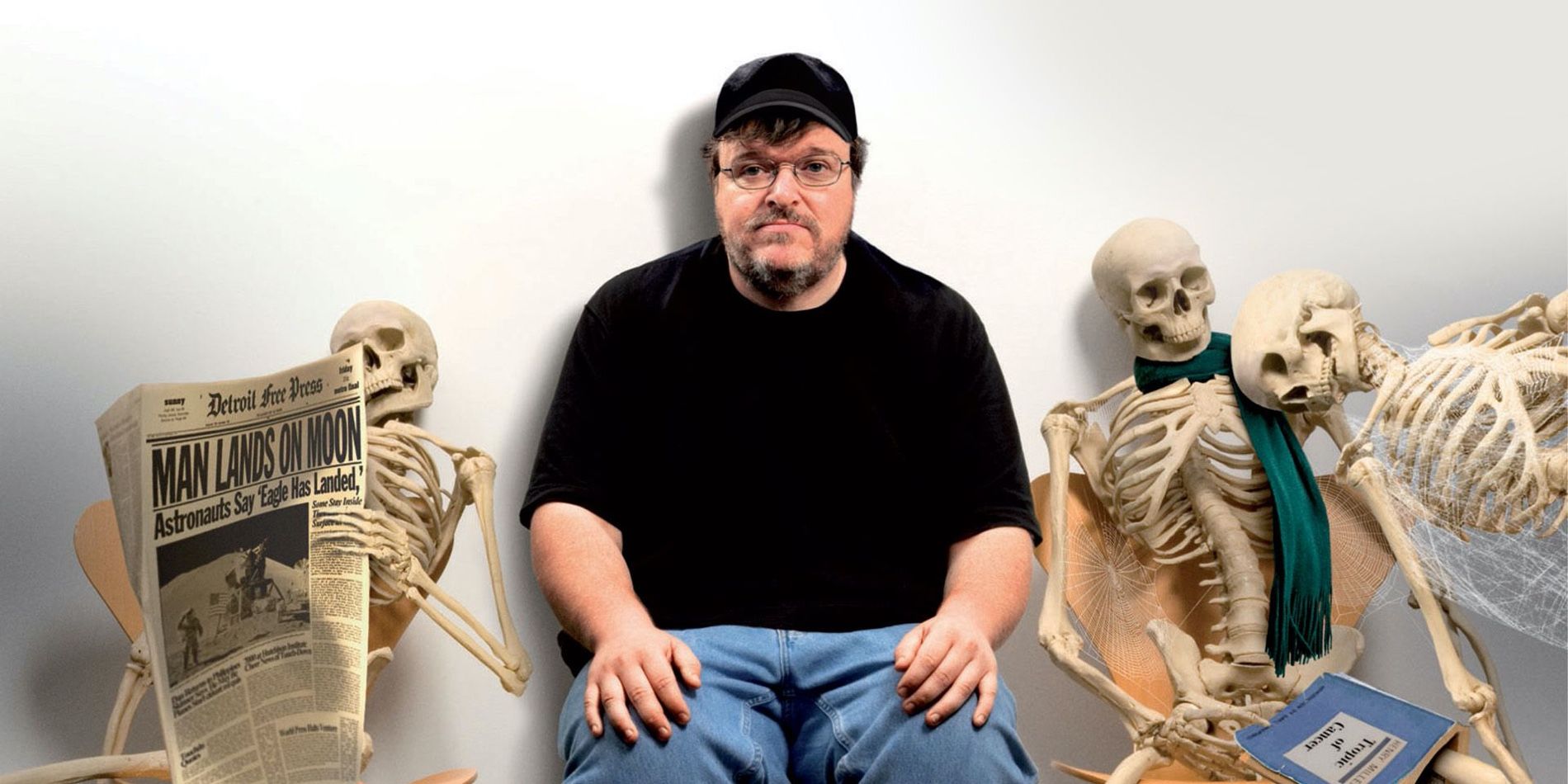
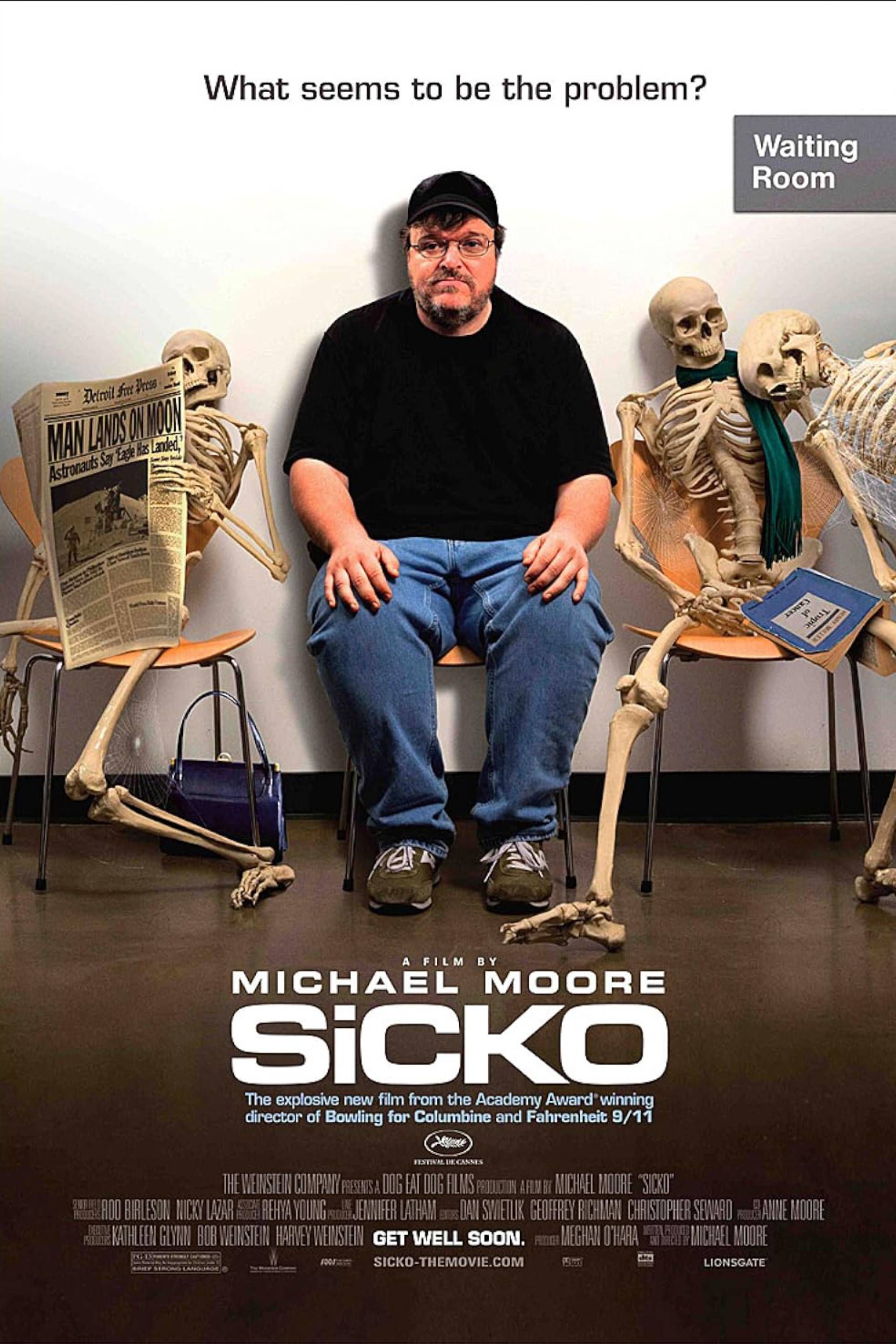
Sicko is a documentary film directed by Michael Moore, which investigates the American healthcare system by comparing it to foreign healthcare systems in countries like Canada, France, and the United Kingdom. The film critiques the challenges faced by Americans under a privatized healthcare system and highlights the benefits of universal healthcare in other developed nations. Sicko features interviews with patients and healthcare professionals to spotlight the disparities in treatment and access.